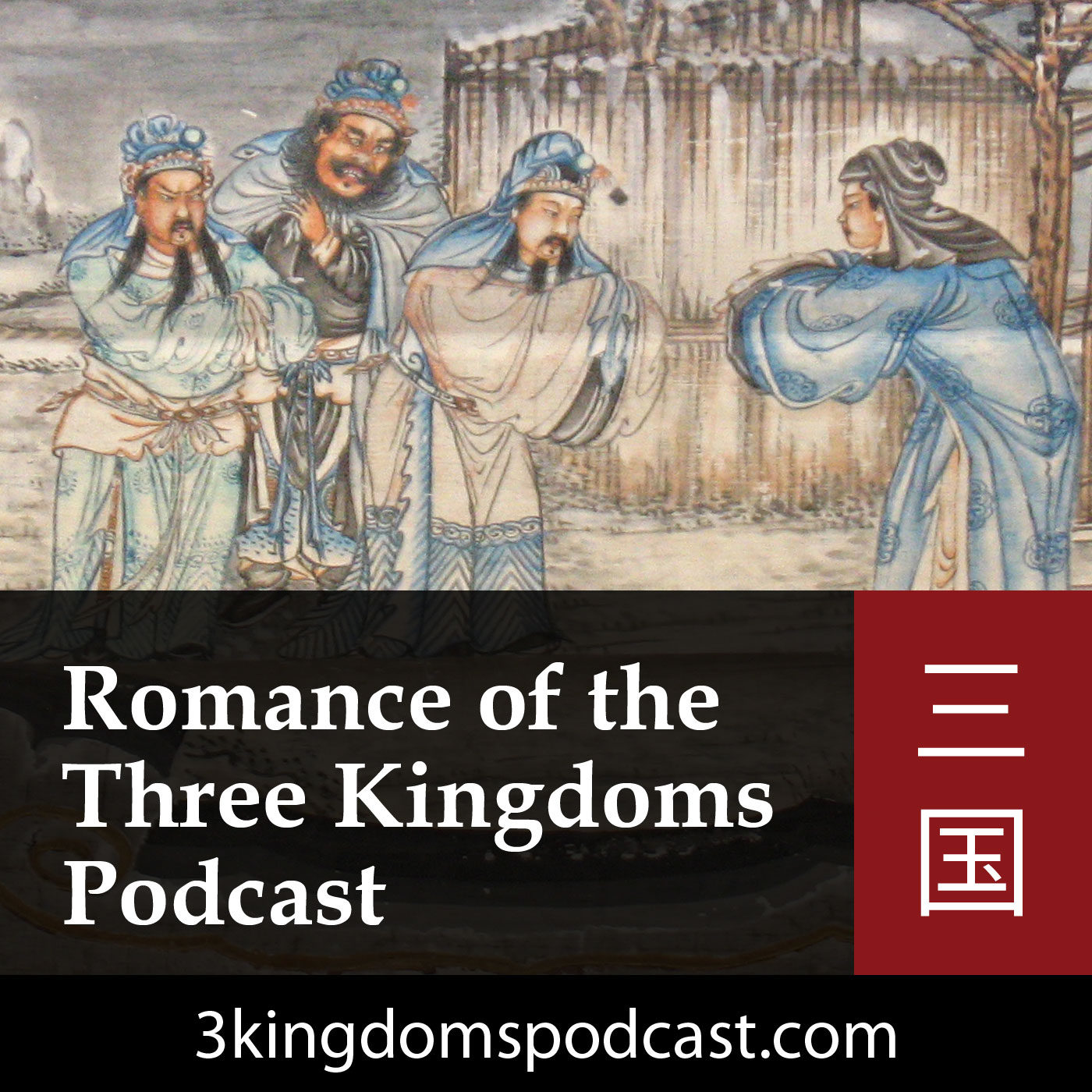Supplemental Episode 016: Learning to Delegate - Romance of the Three Kingdoms Podcast
Description
Meet two statesmen who really mastered the art of saying, “That’s not in my job description.”
Bing Ji (left) and Chen Ping
* Transcript
Transcript
PDF version
Welcome to the Romance of the Three Kingdoms Podcast. This is a supplemental episode.
In this episode, we’re going to look at a story related to Bing (3) Ji (2) and Chen (2) Ping (2), two famous officials from the Western Han dynasty. One of Zhuge Liang’s aides name-dropped them both as he tried to convince Zhuge Liang to delegate some of his responsibilities for the sake of his own health. The aide said, “Look at Bing Ji, who cared not for dying men on the road but worried about a panting ox, or Chen Ping, who did not know how much grain or money the state had.”
Now, on the surface, it would seem like those are not exactly good traits for a prime minister, but there are stories behind those references. Let’s first look at the story of Bing Ji. He was born sometime in the second century BC and died in 55 BC. There’s an interesting backstory about him that I want to a little bit about first before we get to the crux of our episode.
He started out as a provincial jailer and eventually rose to one of the highest officials in the judiciary in the capital, but then he was demoted back to the provinces for some transgression. Now, this was during the time of the Han emperor Wu (3), who lived to age of 69 and reigned for 54 years. That 54-year reign, by the way, would stand as the longest in Chinese history for 1,800 years. This emperor Wu was a very important ruler and oversaw China’s greatest expansion. But toward the end of his reign, he ran into some major turmoil.
In the year 92 BC, the wife of his prime minister was exposed for casting curses on the emperor, which led to the prime minister and his entire family being executed. But it didn’t stop there. Members of the imperial house were dragged into this mess, and somewhere along the way, an official who had a grudge against Emperor Wu’s heir apparent accused said heir apparent of partaking in witchcraft. Whether or not that was true soon became immaterial. The prince, feeling cornered, decided that fortune favored the bold. While Emperor Wu was out of the capital, the prince faked an imperial decree and launched an armed uprising in the capital. He killed the officials who were making accusations against him, but that was as far as fortune carried him. When the emperor heard that his son was leading an uprising in the capital, that pretty much confirmed everything he suspected, so he sent an army to put down this rebellion. The prince was defeated and committed suicide. But he wasn’t the only member of the clan to go down. His wife, his son, and his son’s wife were all executed. And even the prince’s grandson, an infant of just a few months, was arrested and put in jail.
And the guy who was in charge of the jail at the time? That’s right. None other than Bing Ji. He had been summoned back to the capital to help out with the caseload during all these purges. Bing Ji knew that the prince was innocent, so he looked after the dead man’s infant grandson in jail. He selected a couple female prisoners to nurse the baby, commuting their sentences for the duration.
Meanwhile, Emperor Wu’s paranoia continued to rage. Even after purging his own heir apparent and his family, the old emperor was still worried about potential challengers to his power. He got the notion that there was still an imperial aura hanging around the jail in the capita...
More Episodes
Published 04/09/24
Published 04/09/24
Hi everyone. I want to let you know that I have posted the first episodes of Investiture of the Gods on the Chinese Lore Podcast. If you are not yet subscribed to that show, go to chineselore.com. You will find links to the show on various podcast platforms and on YouTube, as well as links to...
Published 10/17/22


